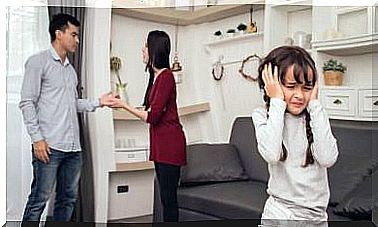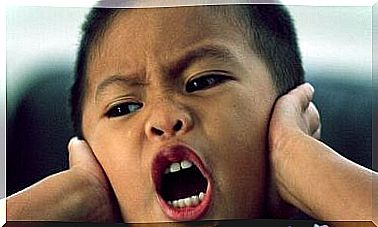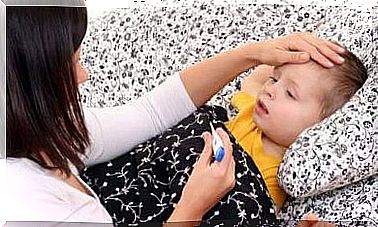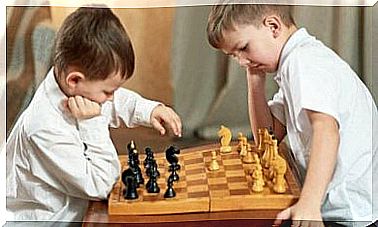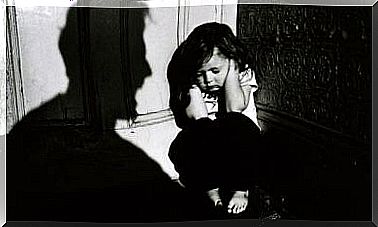Toxic Shame In Children: How Do They Develop It?

It’s normal to feel ashamed sometimes. This is a normal thing that sometimes makes us sad when our failures come to light, such as making a mistake in public speaking or tripping and falling. However, this can lead to toxic shame in children if they associate shame with fear from an early age.
Shame in itself is not bad. This can even be positive, as it can help children turn inappropriate behavior into more acceptable behavior. But what happens if we punish children right after a situation they are ashamed of? How do children develop toxic shame? We will address these questions next.
Shame, a tool to teach children
Shame is a feeling that helps us improve inappropriate behavior for better ones. It is a learned cultural behavior and it helps many young people interact in their communities.
However, different cultures cause us to have different kinds of behavior because what you can see in one culture may not fit in another. As a result, certain behaviors activate shame, but this can change from one place to another. However, the feeling of shame is universal.

It is quite normal for children to feel ashamed at times because it is actually something that helps them fit into society. It emphasizes in a negative way when they violate a social norm.
What happens when parents punish children after a situation in which they feel ashamed?
In these cases, the child may associate a sense of shame with fear, which hinders their learning. Instead, they may feel imperfect and alone. Both emotions together can make the child feel misunderstood or feel like they aren’t good enough.
That is why it is always important that you try to correct behavior with kindness and tenderness so that children learn their lesson, but do not associate it with something bad. That way they keep feeling positive and you can help correct mistakes without feeling less valuable as a person.
Why do children develop toxic shame?
If you punish a child for any wrong or inappropriate behavior, they can eventually develop toxic shame. This can cause extreme embarrassment, which can affect their self-esteem and confidence. Therefore, it can also have a significant impact on their lives.
Can You Pass On Toxic Shame To Your Children? Yes, you can convey toxic shame in several ways. For example, you are in a public place when your child throws a tantrum. You could be ashamed and scold them. Then the reason for the tantrum is not important, but your child will only feel ashamed.
If this happens, it is best to talk to your child and explain why you reacted the way you did and why their behavior was inappropriate. We can all learn from our mistakes, and so can our children.
How can we avoid toxic shame in children?
It is important that parents work on their feelings and emotions. You have to be aware of what makes your children feel ashamed to try to remedy this. As we know, children imitate the behavior of their parents. Keep these tips in mind to avoid passing toxic shame onto your kids:

1. Avoid Punishment and Reprimand
If you want your child to change their behavior, you need to show empathy. In this way, your child can distinguish between appropriate and inappropriate behavior without having to resort to punishment.
2. Always raise them with positive reinforcement
If you focus on positive reinforcement, your child’s brain will begin to control impulses and develop connections. The more you understand your child, the better they can direct these impulses. However, if criticized, they will resist any behavior management.
3. Be an example of behavior you want to instill in your children
We all know that parents are their children’s most important role models. They automatically accept that everything their parents do is correct. However, this means that it is difficult for them to exhibit behavior that they do not see at home. So keep in mind that if you yell, they will too.
4. Talk openly with each other and make sure you don’t create taboos
If you don’t talk openly in your home, your children may keep secrets from you that could make them feel ashamed. They tend to hide things that are not worded or that they think are wrong, and this causes more damage. That is why we must not avoid topics so that they do not become taboos.
Avoiding Toxic Embarrassment in Children
As you have seen, toxic shame in children can cause insecurities, low self-esteem, and low self-esteem among other things. Now that you know what it is and how to prevent children from developing this problem, you can put some of the tips we’ve discussed here into practice to make sure you don’t pass this shame on from one generation to the next.

